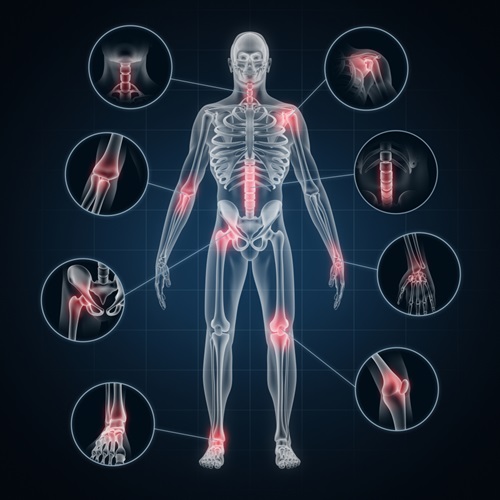IJBP Pilot Grants
2025-2026 Application Cycle Now Open
The goal of the CUIJBP is to foster innovative collaborative research amongst multiple disciplines to advance our understanding of the etiology of inflammatory and degenerative joint diseases.
We are pleased to announce the 2024-2025 cycle designed to support for three 1-year grants, $50,000 each, (direct cost only, no in-direct costs are permitted) to support investigators who are pursuing joint biology related research with the goal of applying for NIH K/R type funding or other extramural support.
Eligibility
- Faculty members at all ranks from the University of Colorado are eligible to apply as PI.
- Applications from early-career investigators are encouraged.
- Co-investigators from other institutions are also encouraged to apply, as long as the PI of the proposal is either faculty at CU Anschutz or a CUIJBP co-investigator is engaged in the research.
Review and Decision Process
- Applications due by February 28, 2025, 5:00 p.m. MST
- The submitted grant application will undergo external peer review
- The score will be based on the NIH scale.
- Applicants will be notified by June 1, 2025 of award decisions.
- The relevant IRB and/or IACUC applications must be submitted by no later than 2 weeks following award notice.
- Grants will begin July 1, 2025.
Additional information: Review the full RFA
To APPLY: Interdisciplinary Joint Biology Pilot Program
Questions: Dr. Larry Moreland, Director of the Interdisciplinary Joint Biology Program [email protected]
Past IJBP Award Recipients
2022-2023
Brain Circuits of Acute and Chronic Joint Pain
Yoni Asher, PhD
The goal of this project is to investigate if functional MRI can be used to study the distinct brain pathways supporting acute vs. chronic knee pain and to develop an initial brain biomarker predictive of chronic knee pain in patients.
2021-2022
RNA Profiling and Multispectral Immunohistochemical Analysis of Complement and Other Innate Immune Factors in the Synovium Following Anterior Cruciate Ligament Injury
Nirmal K. Banda, PhD and Rachel M. Frank, MD
The two primary aims of this pilot project will be to quantitate complement gene expression and innate immune factors from synovial tissue and blood after ACL injury and to determine, using multispectral immunohistochemistry, complement protein expression and innate immune cells in synovial tissue at the time of ACL injury.
Examination of Body Mass Index and Inflammation as Contributors to End Stage Osteoarthritis
Patrick Carry, MS and Cheryl Ackert-Bicknell, PhD
Using a Mendelian randomization design, the primary aims this study are to test the causal effect of inflammation and early onset (childhood) BMI on end stage OA (occurrence of total knee and/or total hip joint arthroplasty) in the UK biobank. Building on prior work, this project will also aim to test whether prior injury history modifies the association between inflammation and end stage OA.
Determinants of Nickel Sensitization in Joint Failure Patients
Shaodong Dai, PhD, Karen Pacheco, MD, MSPH and Craig Hogan, MD
The primary aims of this project will be to compare Ni2+ specific CD4+ T cell repertoires in synovial fluid compared to blood from implant failure patients and to determine DR53 or other HLA restriction of Ni2+specific APCs in joint tissue compared to blood.
Examining the role of inflammation and early synovial immune cell infiltration in the development of the OA of obesity
Lacey Favazzo, PhD, Michael Zuscik, PhD, Cheryl Ackert-Bicknell, PhD and Larry Moreland, MD
The primary aim of this project is to investigate whether pro-inflammatory dysregulation of the synovium takes place in obese human subjects prior to evidence of histological damage.
The Impact of Pulmonary Silica Exposure on the Initiation of Autoimmune Responses in the Lung in the Development of Autoimmune Arthritis
Amy McKee, PhD, Andrew Fontenot, MD and Kristi Kuhn, PhD
The primary aim of this project is to develop a pre-clinical animal model to explore the role of the lung and environmental exposures in the initiation of rheumatoid arthritis. We will determine if pulmonary exposures to silica particles precipitate or enhance the development of autoimmune arthritis in mice. This study will enhance our understanding of early mechanisms in disease pathogenesis and inform development of early interventional strategies for rheumatoid arthritis.
